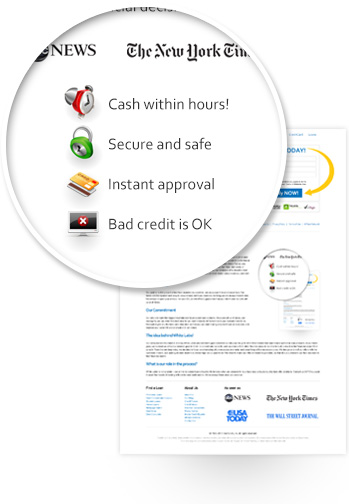Getting a loan has never been easier. I didn't have fax anything and there was no unnecessary paperwork. Thank you so much
Jessica, Dallas, TX

If you have ever bought a car using credit money, you already know how competitive interest rates are in this sector. Mechanisms used by financial institutions, banks, and credit unions to attract more customers are both complex and well-diversified. At the same time, offers associated to them have become implicitly varied, too. Saving more money in the long run or spending less tomorrow – these are the two options you have to choose from. At the same time, the number of variables influencing auto loans is so high (amount of the loan; repayment period; extension opportunity; fixed vs. variable APR; type of car; etc.) that people have turned to professional companies to get help. You too can get help at www.unitedfinances.com, where we concentrate on providing the most advantageous solutions to our customers.
But how did lenders get to offer auto loans in the first place? What are the reasons behind this particular financial product? What are their benefits and how are they optimized as to become equally profitable for the borrower and the lender need cash now? The answers to all these questions are as follows:
Structurally, there’s little difference between a regular loan and an auto loan from the bank’s or financial institution’s perspective. The accessibility of loans for buying cars is thus much higher today than it has ever been. Although it depends on your credit history, this type of loan is within your reach if you can prove your financial reliability. The approved interest rate is correlated with your credit score: the higher your credit score, the more opportunities you have to get access to an auto loan. Age is also relevant, as financial institutions stress on the importance of helping the young get a car.
The most important benefit of all is that lenders welcome all types of borrowers to access car loans. Also, they can speed up the process if you’re in a hurry to reduce the time you usually spend filling in papers. In general, they take little time for approval once all the documents are in place.
The best options are to be found online due to the increased adaptability of the system; here, you can contact banks, online lenders, and other financial businesses and companies that offer auto loans on a regular basis.
Understanding the repayment terms is essential when taking out an auto loan. The length of the repayment period can vary from 24 to 72 months or longer, depending on the lender. Shorter repayment terms often come with higher monthly payments but lower interest over time, while longer terms may result in lower monthly payments but higher interest costs. Borrowers should carefully review the terms to avoid unexpected fees and penalties for late payments.
Lenders require certain eligibility criteria to approve an auto loan application. Applicants generally need to have a steady income, a valid driver's license, and a good credit score to qualify for competitive interest rates. However, there are options available for those with less-than-perfect credit, though the terms may not be as favorable. Be prepared to provide documentation, including proof of income and identity, during the application process.
Before committing to an auto loan, borrowers should consider alternatives like leasing or borrowing from a credit union, which may offer better interest rates. If a down payment is an issue, saving for a larger deposit can reduce the loan amount and interest costs. Other options like peer-to-peer lending or exploring no-interest financing deals directly through dealerships can also be worth considering.
Auto loans are regulated to protect borrowers from unfair lending practices. Federal and state laws ensure transparency and fairness, requiring lenders to disclose all terms clearly. Understanding these regulations helps borrowers make informed decisions and avoid predatory lending. The Truth in Lending Act mandates that lenders provide clear information on fees, interest rates, and repayment terms to safeguard consumers.

© 2013 UnitedFinances.com, Inc. All rights reserved.
UnitedFinances.com is a free comparison service empowering consumers to make better financial decisions. Our services are completely free of charge to our customers. However, this site may be compensated when a user clicks an "apply" or "apply now" button, or other links on the website.